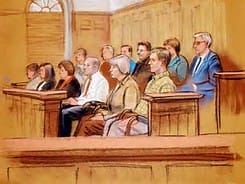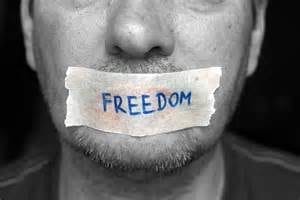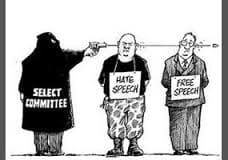by Jason Tarnow | Mar 9, 2017 | Crime, Criminal Attorney, Legal Rights, Police, Social Media, Wheels Of Justice
The scales of justice weighed in favour of an Accused woman earlier this week, when the Ontario Superior Court upheld her acquittal of impaired driving related charges in Ontario.
Kimberly McLachlan was acquitted of impaired driving in August 2015 after she succeeded in having evidence inadmissible at Trial – her breathalyzer readings, to be specific. This is known as a Charter application, as it seeks to have evidence excluded based on a breach of a Charter protected right.
Her application was based on the fact that when she taken to the police detachment, where she was required to provide a breathalyzer sample, the arresting officers’ had her stand on a scale so that they could have an accurate record of her weight.
Unfortunately, their attempt to be thorough actually triggered a breach of Ms. McLachlan’s section 8 under the Charter – providing protection against unreasonable search and seizure.
It is not part of standard procedure that the police would weigh a person who has been arrested on suspicion of impaired driving. The Judge confirmed that weighing a person is a violation similar in nature to taking bodily fluids (such as a urine or blood) without a warrant.
It is nuances like this – something seemingly harmless – that will catch the attention of a skilled criminal lawyer. Circumstances like these demonstrate the necessity of hiring a criminal lawyer who is familiar with Charter protected rights.
Impaired driving is a particularly complex offence, with a variety of available defences that must be reviewed in tandem with your unique circumstances. Contact our office today for a consultation that will allow us to come familiar with your situation.

by Jason Tarnow | Mar 1, 2017 | Crime, Criminal Attorney, Police, Wheels Of Justice
Dialogue surrounding mental illness echoes from the walls of nearly every courtroom across the country, which won’t come as a surprise to anyone. When dealing with an Accused person, both Crown and Defence will investigate what their client’s state of mind was like during the commission of the offence – it speaks to intent, which is a very important component in analyzing the intricacies of criminal behavior.
If Crown Counsel proceeds by way of Indictment (as opposed to summarily), the Accused will have the option of having their case heard by a Judge and Jury. If they so choose to have a Jury, members of the public will receive a summons to attend Jury Selection. Some will be chosen, and some will be dismissed. All who are chosen to sit on the jury will not have a say in what their role will be – they are bound by civic duty to fully participate.
Lengthy criminal trials are not uncommon – Robert Pickton’s Trial in 2007 lasted nearly a year, with lawyers calling 129 witnesses, and generating over 1.3 million documents. 129 individuals providing testimony, often gruesome and violent in nature, falling on the ears of 12 every day citizens, none of whom requested to put their lives on hold for a year. Jurors are required to view photo and video evidence, regardless of how brutal those images may be.
But, what happens to jurors once the Trial is over? One would assume that they gladly return to the nuisances of the life they had before the Trial. Sadly, however, many never return to their normal lives.
Post-Traumatic Stress Disorder is often associated with mental illness – however, this is not a fact. PTSD is a psychiatric injury. After repetitive exposure to traumatic situations, the human psyche may succumb to the disturbance. This is rarely immediate – recurring nightmares or overwhelming thoughts are normal to a point. Fresh events remain fresh in our minds.
It is the fog, cotton-in-your-ears feeling, and anxiety that will indicate the onset of PTSD weeks or months after the trauma has occurred. It can be a very isolating and numbing experience – and for whatever reason, societal stigma or taboo, people tend to carry a lot of shame with their PTSD diagnosis. And it is no different for jurors like the ones who sat on Pickton’s jury.
After hearing weeks of testimony, a juror can feel a genuine, bona fide connection with the victim(s). This is amplified when the victim’s family and friends are present for the Trial. Huge internal conflict can erupt when a juror must balance their responsibility and duty to the Court with their own morals and values. This internal back-and-forth is another burden, on top of what they have seen and heard, that they will be left to deal with on their own when jury duty is over.
So what responsibility does our government have to jurors afflicted with PTSD as a result of their participation at Trial? It would not be absurd to consider them as victims of crime. As such, they should have access to every single resource that is made available to the victims of first instance.
Last month in Ontario, the provincial government began offering free counselling for juror members, available either at the end of the coroner’s inquest, or at the end of the Trial. Only time will tell how receptive jurors are to the program, which sadly, hangs on the willingness of individuals to fight against PTSD and its crippling side effects.

by Jason Tarnow | Nov 7, 2016 | Crime, Legal Rights, Media, Social Media, Uncategorized, Wheels Of Justice

Offensive and shocking cellphone footage has led to criminal charges for a 49 year old man from Hope, B.C.
Karry Corbett received a $110 parking ticket, which initiated a heated exchange between Corbett and the parking enforcement officer. Ravi Dhura, of South Asian descent, was an innocent bystander who noticed the altercation between Corbett and the parking officer, and pulled out his cellphone to film the incident.
This led to Corbett turning his rage to Dhura, hurling obscene remarks directed at Dhura’s nationality, telling him to “go back to India” at one point, and then raising a fist and proclaiming “white power”. The comments made by Corbett aren’t difficult to interpret, which is clear by the reaction of the public. Comments on social media called for Corbett to be charged with a hate crime, but there were no such charges recommended by the RCMP.
“When did you come to Canada?” asked Corbett of Dhura, who replied that he was born a Canadian citizen. Corbett made many comments similar to that one – clearly indicated his belief that Mr. Dhura must have immigrated here at some point, alleging he was not Canadian born.
After a fairly brief review of the evidence, Crown Counsel approved 2 counts of assault, one count of uttering threats, and one count of causing a disturbance – charges that aren’t foreign to Mr. Corbett. According to RCMP he has a lengthy criminal record for similar offences, including 2 matters currently before the Courts.
Now, the public is wondering why, in the face of clear racism, there is no talk of prosecuting a hate crime. There has also been speculation on social media of how Corbett can be charged with 2 counts of assault when there was no physical contact.
The answer is easily drawn from the definition of Assault in the Criminal Code.
As you will see, the definition of assault is broad enough to include indirect force. Upon watching the video it is easy to see how Mr. Dhura, and the parking enforcement officer, would feel threatened.
As for the hate crime, there is no offence named “hate crime” in the Code, however, in this situation, Section 319 – Public Incitement of Hatred, would seem most fitting. Ultimately, Crown Counsel reviewed the available evidence, and determined that such charges would be inappropriate in Mr. Corbett’s circumstances. While some have indicated that charging Mr. Corbett for his comments infringes on his Constitutional right to Freedom of Speech, there are limitations. These limitations are set by our societal values, and rule of law that protect any and all individuals from being the victim of hateful speech.
Instances of hate propaganda and hateful speech in Metro Vancouver and surrounding communities such as Surrey, Richmond, Burnaby, Abbotsford and other Valley municipalities are steadily increasing. In January 2016, during an influx of Syrian Refugees settling in Canada, over 100 people were pepper sprayed by one disgruntled citizen at a gathering in Vancouver, B.C. RCMP indicated that kind of attack could constitute a hate crime.
Then, in August 2016, a Turkish speaking man was beaten in Vancouver for “speaking a foreign language” according to his attacker. RCMP confirmed they would be investigating that situation as a hate crime, however, it resulted in assault charges being laid against a 54 year old man.
In modern day society, social media has proven to be a useful tool in gauging the public’s tolerance for racism – this situation demonstrates that Mr. Corbett’s actions simply went too far. However, as our judicial system provides, Mr. Corbett is innocent until proven guilty.

The issues that are raised in matters like these are complex and require the expertise of seasoned criminal lawyers – therefore if you, or anyone you know, face a situation similar to Mr. Corbett’s, contact our office today to discuss your next steps.

by Jason Tarnow | Sep 12, 2016 | Crime, Legal Rights, Media, Police, Social Media, Wheels Of Justice
A vigilante group based out of Surrey, B.C., has been making headlines lately for their efforts in identifying and publicizing child predators to the media via video. It’s a spin-off of Dateline’s “To Catch a Predator”.
The videos, which are publicly posted to the group’s Facebook and Youtube accounts, display the real-time encounters had between members of the group and the individual that they have led there with false promises of sexual relations with an underage person, after chatting online about it.
The encounters are brief, lasting only a few minutes at most. The exchange between the two parties consists of accusations from one side, and flat out denials from the other. The subject of the Creep Catcher’s “investigation” attempts to shield his face before turning and running in the other direction, continually denying the allegations. What happens beyond that point is unknown.
From what I’ve seen, the public seems to be pleased with the endeavors of Creep Catchers. The videos certainly provide shock value – generally, the public does not play a role in, or even have the opportunity to witness the apprehension of a suspected pedophile – and for good reason.
The investigations that are conducted with respect to these offences are complex, calculated and require significant resources and manpower. The Integrated Child Exploitation Unit of the RCMP works with Interpol and police agencies around the world to gather, sort, and analyze information that advances their efforts in identifying, charging, and convicting individuals of child-related offences such as the Possession and Distribution of Child Pornography.
There are tactical strategies that require a high degree of skill and experience to be carried out effectively. The process of gathering evidence before an arrest and charge approval is paramount to the success of the investigation – in cases like these, proper identification of the suspect can take a significant amount of time. And this is where the work done by the RCMP and the work done by Creep Catchers become astoundingly diverse. Creep Catchers does not have the resources, funding, experience or skill to be meddling in these matters. There are several risks that come to mind:
1) Meeting these individuals in a public place, at a busy time of day, poses a serious risk to innocent bystanders in the area. Creep Catchers does not know if the individuals they are liaising with are violent or mentally ill. Innocent people could be caught in the cross-hairs of an encounter that quickly gets out of hand;
2) The police may already be conducting an investigation on an individual who has been sought out by Creep Catchers. This could lead to that entire investigation collapsing;
3) The very real possibility that they may wrongfully accuse someone of these crimes. The repercussions of being wrongfully blamed could be permanent. It is extremely difficult to exonerate someone on such allegations.
While their intentions may be good, the ends do not justify the means. This work is best left to the police.
Accessing, distributing, and making child pornography available are some of the most serious offences in the Criminal Code. There are new mandatory minimum jail sentences for these offences, details of which can be found here. Aside from a custodial sentence, someone convicted of one of these offences will almost definitely be required to register as a sex offender, which comes with lifelong consequences.
Our offices frequently handle cases with similar allegations. If you have been charged with one of these offences, contact our office to retain a criminal lawyer who can assist in navigating you through the criminal justice system with your best interests in mind.
by Jason Tarnow | Jun 2, 2016 | Crime, Criminal Attorney, Media, Police, Politics, Social Media, Wheels Of Justice
Distracted driving. It’s a hot topic these days – it seems that technology is steadily advancing, while our common sense refuses to evolve. It’s an issue that, in some ways, exploded overnight. Ever since our provincial government implemented the Immediate Roadside Prohibition scheme, the focus has been centered on impaired driving. As the number of drunk driving related fatalities (supposedly) continues to fall as a result of the IRP system (in fact our Government now says that distracted driving is the leading cause of death on roadways in BC), lawmakers have narrowed in on distracted driving – to be specific, reanalyzing the financial and disciplinary consequences of being caught while talking on an electronic device while driving. Brace yourselves: the pain train is coming.
If you’ve been using your phone while driving, trying to send that one last text, or fumbling with your playlist while going unnoticed, all the while scanning intersections for police cruisers…well, today’s the day you might want to quit. As of June 1, 2016, fines handed out by police have increased from $167 to $368. Further, a driver will now receive 4 penalty points instead of 3 – and 4 points is all that’s required for a $175 penalty towards your insurance. So basically, on your first offence, it’ll cost you $543. If you get caught a second time within 12 months, that penalty will cost you $888, and you risk losing your license for 90 days (click here to be redirected to the ICBC penalty point premium information page).
It’s important to remember that although nearly every article you’ll read about this topic will use the term distracted driving, the real offence that is being described is the use of an electronic device while driving. You are still safe to drink your coffee and eat your bagel (for now) (and please do so responsibly). Please remember that driving with your cellphone wedged between your shoulder and ear isn’t a legal loophole – it almost worked for this guy, but he lost on appeal). Also make sure to check out this post which touches on the hypocrisy of one of RoadSafety’s policies.
It’s also important to remember that the tickets handed out for this offence are not criminal charges, rather, they are issued under the Motor Vehicle Act. As of right now, these violation tickets are still heard before a Provincial Court Judge within the jurisdiction of issue. The offices of Tarnow & Company and Jason D. Tarnow Law Corporation are both well equip with criminal lawyers to handle the trials of these matters, in any jurisdiction of the lower mainland, including but not limited to Richmond, Vancouver, Surrey, New Westminster, etc.
If you receive a ticket for talking on your cellphone while driving, or any other section of the Motor Vehicle Act, contact our office within 30 days (time limit for dispute) of receiving the ticket for advice regarding the best course of action. We also handle appeals of driving prohibitions that come as a result of an unsatisfactory driving record.
by Jason Tarnow | Apr 21, 2016 | Crime, Criminal Attorney, Legal Rights, Media, Police, Politics, Wheels Of Justice

Hip hop star Snoop Dogg played a DJ set at Vancouver’s Fortune Sound club on Saturday, April 17, 2016. His travel into Canada, however, was met with resistance by officials at the Canada Border Services Agency (CBSA) – which isn’t anything new for Snoop. He frequently encounters complications when crossing international borders – to note, he was recently hassled by officials in Italy for carrying around $400,000 cash, and was banned from entering the UK in 2006, after he and his posse were denied from British Airways’ First Class Lounge. A brawl ensued, and ultimately, Snoop was permanently banned from entering the United Kingdom (and ever flying on British Airways again). Snoop has previously been arrested for other criminal offences with respect to firearms, assault, and narcotics.
It is presumed that Snoop was referred for secondary screening by CBSA as a consequence of his clear endorsement of cannabis. Cannabis is widely used across the US, and is legal in several states for medicinal and recreational purposes. It’s just as frequently accessed by Canadians, and we intend to catch up to our southern neighbors pretty soon (The Liberal government announced that Federal legislation to legalize and regulate marijuana will be making its way to Parliament in Spring 2017).
Understandingly, the rapper became enraged at what he observed when he cruised down a back alley in Vancouver’s Downtown East Side – a district riddled with intravenous drug users, disorder, etc. In his Instagram video (link here), Snoop vocalizes his disdain at how Canadian Border officials dealt with his entrance into the country. To sum it up, he basically shames the Canadian Government with respect to how its priorities are organized – clearly indicating that the prevalent opioid use in Vancouver’s DTES should be viewed as a much more serious issue than a little bit of weed.
Anyone with knowledge of the differences between marijuana and heroin knows which is the lesser of 2 evils – so it does seem contradictory that we not only condone the use of heroin on the DTSE, but seemingly encourage and accommodate it, too. Insite (which is located near where Snoop’s gig was) is a publicly funded program, and its main goal is harm reduction. The idea is that if we are able to monitor heroin use, we will be able to minimize the number of overdoses, and prevent individuals from sharing and disposing of syringes and other tools. As you might guess, the venture isn’t cheap.
The Court of public opinion on law enforcement priorities is harsh, swift, and unforgiving. Snoop’s Instagram rant has received hundreds of thousands of views, and his sentiments were shared by the majority of viewers. If you consider the amount of money that has been directed towards Insite, and the amount of money that is spent annually on investigating and prosecuting marijuana related offences, it’s easy to understand why people are so frustrated with our Government’s stance on cannabis policy. Hypocritical, controversial, and contradictory are the best 3 words to describe our Government’s prerogative on combatting one deadly drug, while ever-so-slowly recognizing the innocuous nature of another.
In any event, it’s fair to say that Snoop Dogg is tired of the chronic problems he encounters when travelling from one place to another – my guess is that he’ll continue to hash it out with border officials. The grass isn’t always greener on the other side, anyways.
In the decades that we have been practicing criminal law, we have rarely, if ever, seen a violent crime associated with simple marijuana possession or use. Violence is more frequently associated to drugs like cocaine, heroin, and methamphetamine. If you have found yourself in a situation that involves criminal charges related to any of the aforementioned, or any other area of criminal law, call our office at any time for a free consultation.






